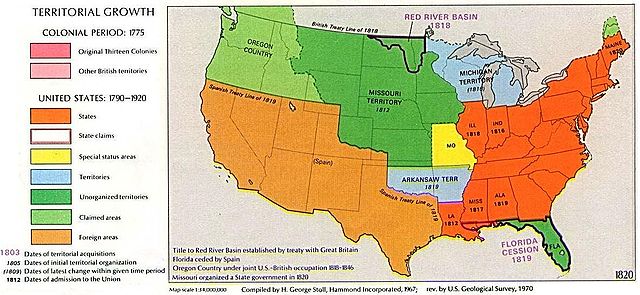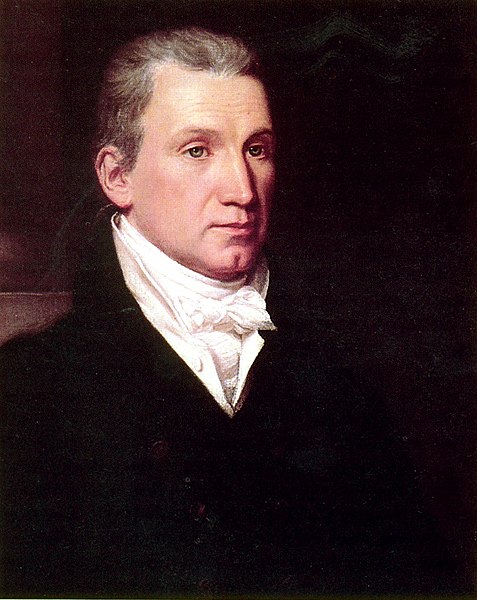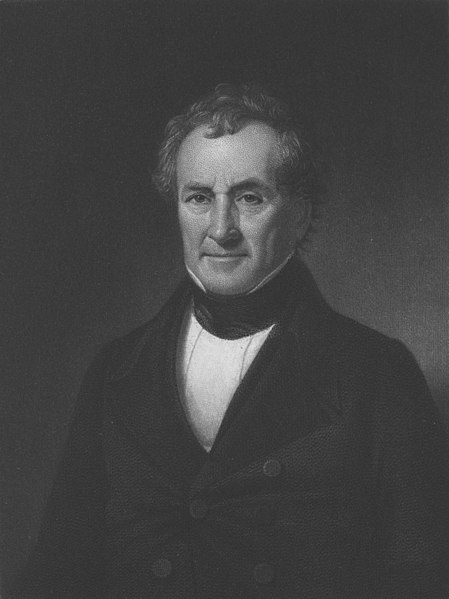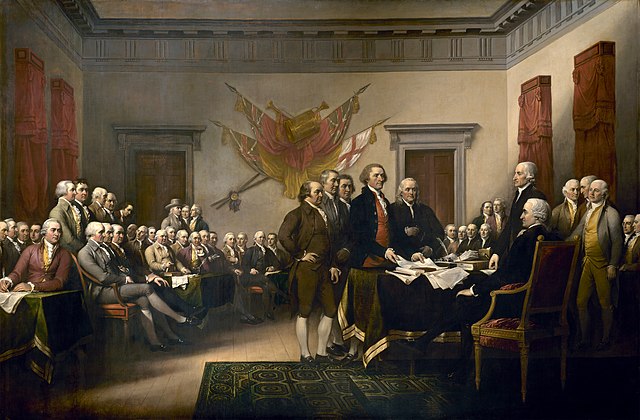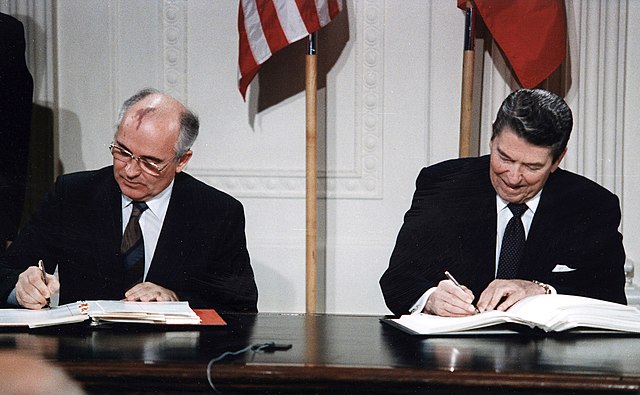The Missouri Compromise was a federal legislation of the United States that balanced desires of northern states to prevent the expansion of slavery in the country with those of southern states to expand it. It admitted Missouri as a slave state and Maine as a free state and declared a policy of prohibiting slavery in the remaining Louisiana Purchase lands north of the 36°30′ parallel. The 16th United States Congress passed the legislation on March 3, 1820, and President James Monroe signed it on March 6, 1820.
The United States in 1819, the year before the Missouri Compromise prohibited slavery in the unorganized territory of the Great Plains (upper dark green) and permitted it in Missouri (yellow) and the Arkansas Territory (lower blue area)
President James Monroe, who signed the Missouri Compromise
Representative James Tallmadge Jr., the author of the antislavery amendment to Missouri statehood
Thomas Jefferson: The Missouri crisis roused Thomas Jefferson "like a fire bell in the night".
The United States of America, commonly known as the United States or America, is a country primarily located in North America. It is a federation of 50 states, a federal capital district, and 326 Indian reservations. Outside the union of states, it asserts sovereignty over five major unincorporated island territories and various uninhabited islands. The country has the world's third-largest land area, second-largest exclusive economic zone, and third-largest population, exceeding 334 million.
Cliff Palace, built by Ancestral Puebloans in present-day Montezuma County, Colorado, between c. 1200 and 1275
Declaration of Independence, a portrait by John Trumbull depicting the Committee of Five presenting the draft of the Declaration to the Continental Congress on June 28, 1776, in Philadelphia
Mikhail Gorbachev and Ronald Reagan sign the Intermediate-Range Nuclear Forces Treaty at the White House in 1987.
The Twin Towers in New York City during the September 11 attacks of 2001

